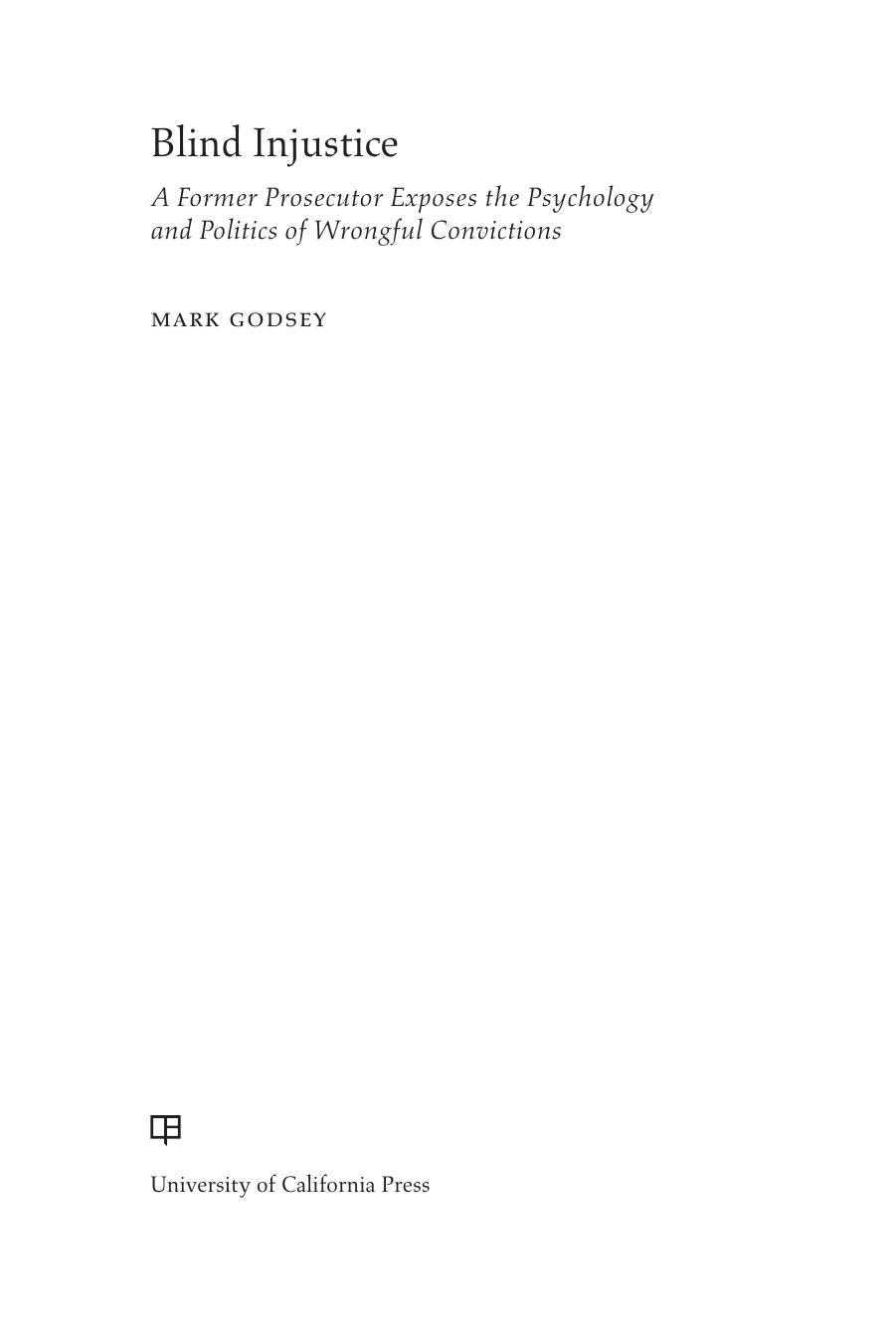Blind Injustice: A Former Prosecutor Exposes the Psychology and Politics of Wrongful Convictions by Mark Godsey

Author:Mark Godsey [Godsey, Mark]
Language: eng
Format: epub, pdf
Tags: Social Science, Criminology, Law, Criminal Law, General, Sentencing
ISBN: 9780520962958
Google: 0rMuDwAAQBAJ
Publisher: Univ of California Press
Published: 2017-10-10T00:50:16.376000+00:00
She now believes that she saw the initial encounter and then looked away, as she was on her bicycle. In that moment, the man began the attack, which lasted about three seconds until he was shot. “I didn’t see the civilian run or swing a hammer,” she said. “In my mind I assumed he was just standing there passively, and now is on the ground in handcuffs.” “With all the accounts in the news of police shootings, I assumed that police were taking advantage of someone who was easily discriminated against,” she added. “Based on what I saw, I assumed the worst. Even though I looked away.” As the [Times] article points out, there’s no reason to think that [this eyewitness] was lying. False memories can seem just as real as real memories.
The next stages of memory after encoding are storage and retrieval. These stages influence each other. Several factors at the storage and retrieval stages often affect the reliability of memories. Two changes happen. The first is that our memory of the encoded event weakens as time passes. Memory does not improve over time.26 One study has shown, for example, that an eyewitness’s ability to correctly identify the perpetrator from a photo lineup is no better than chance after eleven months have passed from the day of the crime, even if the witness accurately encoded many details on the day the crime occurred.27 This is due to the passage of time, which severely weakened the encoded information. In the meantime, the second change occurs: weakened memories are supplanted with false information that the witness saw on the news about the case (like a picture of the suspect who was arrested), or contaminated by what the police or others tell her about the case. Or her memory could be contaminated by her biases, assumptions, expectations, and personal desires about the case. When she picks someone from a lineup eleven months later, studies show that her identification should be handled with great caution, even though she may feel highly confident in her memory.
Dr. Charles Goodsell described the contamination of memory by extraneous information and biases as an expert witness in my Ohio Innocence Project case of Ohio v. Douglas Prade, which involved very shaky eyewitness identifications made after significant time had passed and the witnesses had seen my client’s mug shot on the television news:
Download
Blind Injustice: A Former Prosecutor Exposes the Psychology and Politics of Wrongful Convictions by Mark Godsey.pdf
This site does not store any files on its server. We only index and link to content provided by other sites. Please contact the content providers to delete copyright contents if any and email us, we'll remove relevant links or contents immediately.
| General | Discrimination & Racism |
Nudge - Improving Decisions about Health, Wealth, and Happiness by Thaler Sunstein(7693)
The Fire Next Time by James Baldwin(5431)
iGen by Jean M. Twenge(5409)
Adulting by Kelly Williams Brown(4566)
The Sports Rules Book by Human Kinetics(4379)
The Hacking of the American Mind by Robert H. Lustig(4375)
The Ethical Slut by Janet W. Hardy(4242)
Captivate by Vanessa Van Edwards(3838)
Mummy Knew by Lisa James(3686)
In a Sunburned Country by Bill Bryson(3537)
The Worm at the Core by Sheldon Solomon(3486)
Ants Among Elephants by Sujatha Gidla(3463)
The 48 laws of power by Robert Greene & Joost Elffers(3252)
Suicide: A Study in Sociology by Emile Durkheim(3019)
The Slow Fix: Solve Problems, Work Smarter, and Live Better In a World Addicted to Speed by Carl Honore(3007)
The Tipping Point by Malcolm Gladwell(2914)
Humans of New York by Brandon Stanton(2868)
Handbook of Forensic Sociology and Psychology by Stephen J. Morewitz & Mark L. Goldstein(2704)
The Happy Hooker by Xaviera Hollander(2686)
